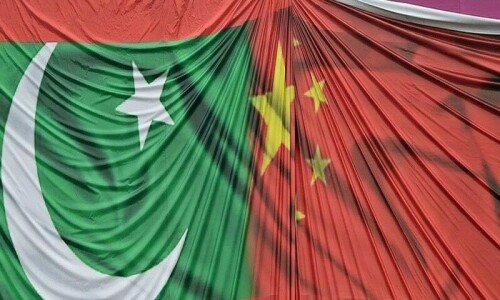This past Sunday, a group of young people gathered at Karachi's Cantt Station with a purpose - to distribute packets of food from a prominent restaurant chain to people who needed it most.
These young people were 'Robin Hood Army' volunteers. 'Robin Hood Army' is a social initiative that aims to take surplus food items from well-to-do eateries and distribute them amongst the country's more needy folk.
Here, the organisers describe their effort in their own words:
1. Who came up with the idea in India and how did you decide to bring it to Karachi?
Delhi-based Neel Ghose and Anand Sinha began this novel initiative in June 2014. The idea is modeled after a similar organization called 'Re-food' in Portugal that works towards elimination of both hunger and food waste in the country. Neel Ghose volunteered at this organization and was so inspired by the concept that he decided to replicate the model in India.
 |
| Pictured: Organisers and volunteers in Karachi. Photo: Instagram |
Neel Ghose and Sarah Afridi, who have been friends since their days at the London School of Economics, decided to bring the cause to Pakistan and chose the day of the India-Pakistan World Cup match on Sunday to start the new chapter in Karachi.
The core team in Karachi consists of six people - Sarah Afridi, Sarfaraz Abid, Anaam Afridi, Mahnoor Abid, Anam Rafiq and Summaya Ayaz.
The demographics of Pakistan and India are very similar. Poverty is a widespread issue. According to the FAO, 40 percent of children in Pakistan are malnourished and underweight due to lack of access to adequate food. And this is not because there isn't enough; Pakistan is the 8th largest food producing country, however, 50 percent of the population is food insecure. With the massive income inequality that persists, RHA is a brilliant movement. We collect leftover or extra food from restaurants and distribute it to the homeless and hungry in the locality.
2. How did the name Robin Hood Army come about?
The catchy name has been derived from the fictional English hero, Robin Hood, who robbed the rich and distributed the booty among the poor. Our initiative is an attempt to show "how individuals can make a difference in the society if they want to." The Robin Hood Army works to get surplus food from restaurants across to the less fortunate.
3. How many volunteers does RHA have?
RHA currently has 400 volunteers across 11 cities.
4. How do you plan to raise funds for this program? Is corporate funding an option?
The beauty of the RHA cause is that it involves redistribution – so we don’t necessarily need funding. Although the team currently funds some of the food out of their own pocket, the aim, however, is to get as many restaurants on board as possible to donate surplus food.
5. How do you plan to structure the project – Will this be carried out every night? Do you have certain spots where you set up food for the homeless? Also, Are you coordinating with the team in India on the program structure or working independently?
 |
| Food distributed by Robin Hood Army. – Photo: Instagram |
The model is simple – to create self-sustained communities across the cities. The distributions are currently held only once a week (mostly Sundays) given that most of us are employed in full time jobs. We are currently working on bringing restaurants on board and structuring the teams to spread out across various areas on Karachi. We have a lot of help from our Indian counterparts and have a call every couple of days to discuss operational issues.
6. How many people does RHA program manage to feed on a given day?
RHA Karachi has only had 2 distributions so far – we started from a 100 people and went up to 250 in our second distribution.
7. What areas are you catering to and how do you reach out to people living in those areas?
Scouting – which is what we call identifying clusters of people who are either homeless, underpaid or just hungry with limited access to quality food, is done a few days in advance of distribution. The core team meets regularly during the week to work out the details on each distribution. We are constantly on the lookout of new areas and welcome recommendations from volunteers.
8. Have you spoken to these people? What is their reaction to this program?
The idea of feeding the less fortunate is not novel to Pakistan. Most of the people just think of this as falling under the umbrella of practices (such as Sadqah and Niaz) that already exist. They are, however, quite happy about us bringing food. Food spreads happiness and everyone can use a little happiness.
9. Are you in talks with restaurateurs? If yes, who have you spoken do and what feedback have you received? If no, who do you plan to reach out to?
We are in the process of reaching out to restaurants. Nando‘s has been the first restaurant to get on board. We have also had Ginsoy and The White Biryani contact us for our next distribution. In addition, a small café being run by an individual in Clifton and a restaurant, Spice in Gulshan, also offered to donate surplus food for our cause.
10. Is this project Karachi-based or do you plan to expand it to other cities as well?
The Lahore chapter is slated to begin in about 2 weeks.
11. How do you plan to create awareness about this program? Do you think social media plays an important role here?
Social media has been key in raising awareness about the program. We have a Facebook page, a Twitter account and we are also on Instagram. Social media helps us provide restaurants some form of accountability as well – so they know what cause they are donating food to.
12. How has the response been so far?
Overwhelming!















































